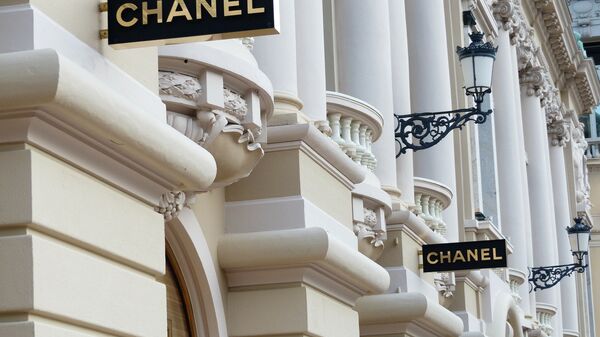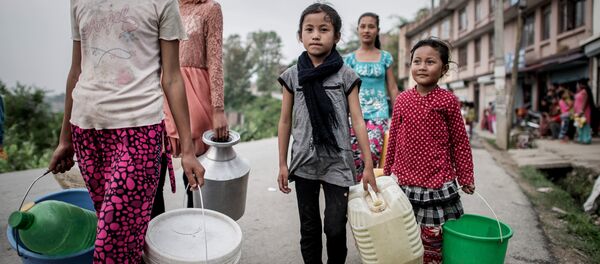Forty fashion brands were asked to fill in a questionnaire — only ten replied. Researchers scored the other 30, based on information available in company reports and online.
It's Fashion Revolution Week! Show your label and ask the brand #whomademyclothes? https://t.co/YIE9dm8n21 pic.twitter.com/oDHIvZMqGb
— FashionRevolution (@Fash_Rev) 19 April 2016
Supply chains in the fashion industry are notoriously difficult to trace, which is why Ethical Consumer and Fashion Revolution have published a report which ranks companies according to their level of transparency in their supply chain.
Are you asking #whomademyclothes it could well be one of our lovely ladies here @FashionCapital Factory North London pic.twitter.com/SRZ4fxjdCI
— Fashion Capital (@FashionCapital) 19 April 2016
Levi Strauss & Co, Zara and H&M came out top in the index — meanwhile, luxury brands Chanel, Hermes, Prada, and Michael Kors are at the bottom of the table among the least transparent when it comes to revealing their social and environmental standards.
Hi @Auria_London Did you meet Paolo here in the #ECONYL plant? He prepares nets for regeneration #imadeyourclothes pic.twitter.com/g9JaWEWWeS
— ECONYL® brand (@ECONYL) 19 April 2016
Chanel scored a total of 10 points — placing the fashion brand at the bottom of the table of the 40 fashion companies — Levi Strauss & Co topped the chart with a total score of 77. The average fashion brand averagely scored 42 points.
#FashionRevolutionWeek is here!
— MayaTraditions (@MayaTraditions) 20 April 2016
Matea, Alejandra and Vicenta promt you to question.. #whomademyclothes?? pic.twitter.com/enf118MRBD
A top rating means a company is making significant efforts in making its supply chain more ethical and transparent. A low rating means that there is little or no evidence that the company has anything more than a 'code of conduct' in place and is making little effort to be transparent about their supply chain.
"Big global brands have a lot of work to do to show their commitment to transparency," according to the report.
The British government introduced the Modern Slavery Act in 2015 — which included a provision for transparency in supply chains, requiring businesses to disclose what they are doing to eliminate slavery. Every company will be required to place the information on a prominent position on their website. If companies don't comply, the Secretary of State may secure a court order.
'More Carrot Than Stick'
However, there is still no central monitoring system to see if businesses are being transparent about their supply chains. It recently emerged during a debate in the House of Lords that the government has no intention of building a national website with information about businesses and their supply chains — despite receiving support for a suggestion for one from the anti-slavery commissioner Kevin Hyland during a previous debate.
Lord Keen of Elie said there was: "No intention to establish a central monitoring system, there should be far more carrot than stick" and that it was never intended to be "a tick box system" but more about companies responding to public peer pressure.
Three years ago on 24 April, 1,134 people were killed when the Rana Plaza clothes factory collapsed in Bangladesh.
In solidarity with the 1133 who died last year at the Rana Plaza factory in Bangladesh I'm wearing my clothes #in… pic.twitter.com/mU8sWZDhUy
— INTIMALENA (@INTIMALENA) April 24, 2014
The factories inside were making garments for well-known western fashion brands; but the companies involved took weeks to work out if they had supply links to the factories or not — despite their labels being found in the rubble.
The question remains — #whomademyclothes and if peer pressure is enough to force companies to be more transparent? Or will many continue paying lip service to the legal requirement in Britain to reveal their supply chains to ensure slavery, including forced labor, has no part in it.



